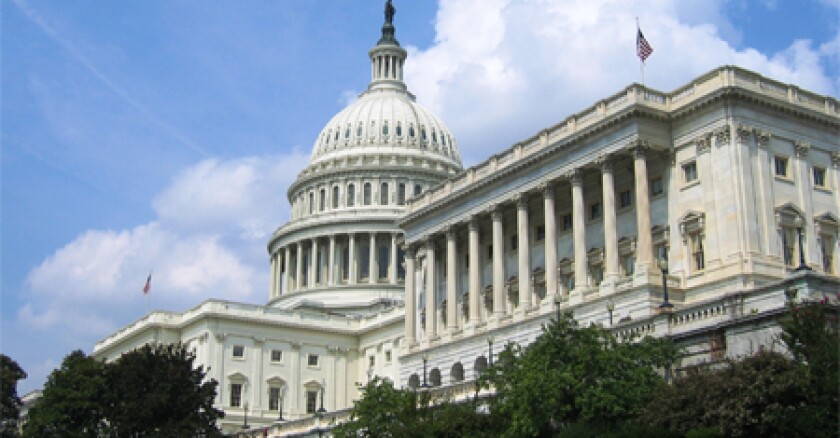Science
Connecticut Faces Education Funding Cuts from New Federal Law

Connecticut’s education system is poised for significant changes following the recent passage of President Donald Trump‘s expansive spending and tax legislation. Signed into law in early July 2023, this nearly 900-page bill introduces sweeping cuts that affect various aspects of K-12 and higher education, from school meal programs to student loan repayment options. Education experts warn that these alterations could deepen existing challenges for schools and students across the state.
“This is a high-level emergency,” stated Steven Hernandez, executive director of ConnCAN, a statewide education advocacy organization. As federal funding for education remains uncertain, the implications of this legislation are far-reaching.
New Voucher Program and Tax Credits
One of the most notable features of the new law is the establishment of the nation’s first federal school voucher program. Preston Green, an education professor at the University of Connecticut, noted that this marks a significant pivot towards private education. The program introduces a $1,700 tax credit for donations to organizations that provide scholarships for K-12 students attending private schools. This tax incentive effectively encourages eligible taxpayers to enroll their children in private education.
Supporters of school choice view this as a victory for educational freedom. However, critics, including Kate Dias, president of the Connecticut Education Association, argue that it undermines public education. “Taxpayer dollars should support public schools that are open to all students — not private institutions that can select whom they serve,” Dias asserted.
Though Connecticut already offers several school choice options, the new federal program allows for taxpayer-funded vouchers that could potentially divert resources away from public schools. Green expressed concern that this could lead to larger voucher programs in the future, particularly impacting rural districts that are already facing enrollment and funding challenges.
Impact on Student Loans and Meal Programs
The legislation also significantly alters student debt relief efforts, limiting repayment options for borrowers in Connecticut. Previously, students had access to various repayment plans, but the new law consolidates these into two options: a standard repayment plan and an income-based plan. U.S. Representative Jahana Hayes noted that this change could increase monthly payments for the average borrower by nearly $200.
In addition, protections for borrowers experiencing financial hardship have been reduced, complicating college access and affordability for many students. The law repeals certain Biden-era initiatives, including the income-driven Saving on a Valuable Education (SAVE) Plan. As a result, approximately 7.7 million borrowers will see a resumption of interest accrual, costing Connecticut borrowers an estimated $297 per month.
The new legislation also imposes cuts to the Supplemental Nutrition Assistance Program (SNAP), which directly affects school meal programs. Education advocates warn that restrictions on eligibility will lead to fewer children receiving free meals at school, a vital resource for many low-income families. “Families who lose SNAP eligibility also risk losing access to school meals for their children,” Dias explained. The bill’s provisions could further strain school budgets, which rely on these programs for essential support.
Furthermore, the law cuts funding for Medicaid, a crucial source of financial support for school-based health care services. As Hernandez pointed out, if Congress reduces Medicaid funding, school districts will likely face budget shortfalls, leading to potential layoffs and service reductions.
Higher Education Funding Challenges
The new legislation also targets university endowments, increasing the tax rate on the wealthiest institutions from 1.4 percent to 8 percent. This change particularly impacts Yale University, which has an endowment of $41.4 billion. University officials estimate the increased tax will cost Yale approximately $280 million in the first year alone. Wesleyan University will also face a new 1.4 percent endowment tax.
In anticipation of these financial strains, Yale has already implemented hiring freezes and is preparing other cost-cutting measures. National education organizations have expressed concerns that the endowment tax will hinder universities’ ability to provide quality academic services and support financial aid programs.
As the educational landscape in Connecticut continues to evolve amid these funding cuts, experts and advocates emphasize the need for careful consideration of the long-term effects on public education and student access to essential services.
-

 Entertainment3 months ago
Entertainment3 months agoAnn Ming Reflects on ITV’s ‘I Fought the Law’ Drama
-

 Entertainment4 months ago
Entertainment4 months agoKate Garraway Sells £2 Million Home Amid Financial Struggles
-

 Health3 months ago
Health3 months agoKatie Price Faces New Health Concerns After Cancer Symptoms Resurface
-

 Entertainment3 months ago
Entertainment3 months agoCoronation Street’s Carl Webster Faces Trouble with New Affairs
-

 Entertainment3 months ago
Entertainment3 months agoWhere is Tinder Swindler Simon Leviev? Latest Updates Revealed
-

 Entertainment4 months ago
Entertainment4 months agoMarkiplier Addresses AI Controversy During Livestream Response
-

 Science1 month ago
Science1 month agoBrian Cox Addresses Claims of Alien Probe in 3I/ATLAS Discovery
-

 World2 weeks ago
World2 weeks agoBailey Announces Heartbreaking Split from Rebecca After Reunion
-

 Health4 months ago
Health4 months agoCarol Vorderman Reflects on Health Scare and Family Support
-

 Entertainment4 months ago
Entertainment4 months agoKim Cattrall Posts Cryptic Message After HBO’s Sequel Cancellation
-

 Entertainment3 months ago
Entertainment3 months agoOlivia Attwood Opens Up About Fallout with Former Best Friend
-

 Entertainment2 weeks ago
Entertainment2 weeks agoCoronation Street Fans React as Todd Faces Heartbreaking Choice





















